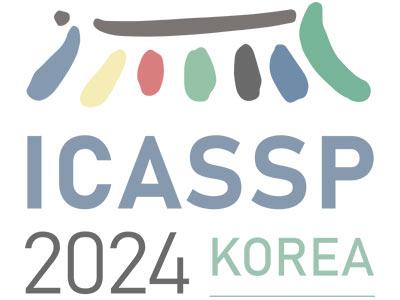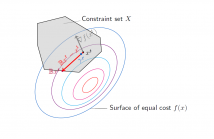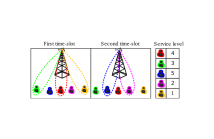
- Read more about Multicast Transmission Design With Enhanced DOF For Mimo Coded Caching Systems
- Log in to post comments
Integrating coded caching (CC) into multi-input multi-output (MIMO) setups significantly enhances the achievable degrees of freedom (DoF). We consider a cache-aided MIMO configuration with a CC gain t, where a server with L Tx-antennas communicates with K users, each equipped with G Rx-antennas. Similar to existing works, we also extend a core CC approach, designed initially for multi-input single-output (MISO) scenarios, to the MIMO setup.
- Categories:
 30 Views
30 Views
- Read more about Channel Estimation in Underdetermined Systems Utilizing Variational Autoencoders
- Log in to post comments
In this work, we propose to utilize a variational autoencoder (VAE) for channel estimation (CE) in underdetermined (UD) systems. The basis of the method forms a recently proposed concept in which a VAE is trained on channel state information (CSI) data and used to parameterize an approximation to the mean squared error (MSE)-optimal estimator. The contributions in this work extend the existing framework from fully-determined (FD) to UD systems, which are of high practical relevance.
- Categories:
 39 Views
39 Views- Read more about Hardware Impairments-Aware Design of Noncoherent Grassmannian Constellations
- Log in to post comments
In this paper, we propose a robust algorithm for designing unstructured Grassmannian constellations for noncoherent MIMO communications that accounts for the effect of hardware impairments (HWIs) such as I/Q imbalance (IQI) and carrier frequency offset (CFO). The algorithm uses the minimum diversity product as a cost function to ensure full-diversity constellations. The constellation points in the Grassmannian are optimized to be robust against any value of the HWIs belonging to a given uncertainty set, the values of which are determined by the characteristics of the hardware used.
- Categories:
 28 Views
28 Views
- Read more about Scaling Law Analysis for Covariance Based Activity Detection in Cooperative Multi-Cell Massive MIMO
- Log in to post comments
- Categories:
 32 Views
32 Views
- Read more about EUSIPCO 2017 Tutorial: Exploiting structure and pseudo-convexity in iterative parallel optimization algorithms for real-time and large scale applications
- Log in to post comments
In the past two decades convex optimization gained increasing popularity in signal processing and communications, as many fundamental problems in this area can be modelled, analyzed and solved using convex optimization theory and algorithms. In emerging large scale applications such as compressed sensing, massive MIMO and machine learning, the underlying optimization problems often exhibit convexity, however, the classic interior point methods do not scale well with the problem dimensions.
- Categories:
 115 Views
115 Views
- Read more about ICASSP 2015 Tutorial: Mixed-integer programming in signal processing and communications
- Log in to post comments
There exists a large variety of applications, for instance in estimation and detection as well as network optimization, that involve both integer (discrete) decision making andthe optimization of continuous parameters. The integer decision making requirementsusually stem from the nature of the problem. In many applications, the physical quantitiesto be optimized are naturally undividable. Think for example of a cellular networkin which a subset of users needs to be selected for transmission. For a given user aconnection is either established or not.
- Categories:
 128 Views
128 Views
- Read more about A Novel Negative L1 Penalty Approach for Multiuser One-bit Massive MIMO Downlink with PSK Signaling
- Log in to post comments
This paper considers the one-bit precoding problem for the multiuser downlink massive multiple-input multiple-output (MIMO) system with phase shift keying (PSK) modulation and focuses on the celebrated constructive interference (CI)-based problem formulation. The existence of the discrete one-bit constraint makes the problem generally hard to solve. In this paper, we propose an efficient negative ℓ 1 penalty approach for finding a high-quality solution of the considered problem.
- Categories:
 19 Views
19 Views
- Read more about JOINT BEAM SELECTION AND PRECODING BASED ON DIFFERENTIAL EVOLUTION FOR MILLIMETER-WAVE MASSIVE MIMO SYSTEMS
- Log in to post comments
Poster3.30.pdf
- Categories:
 15 Views
15 Views